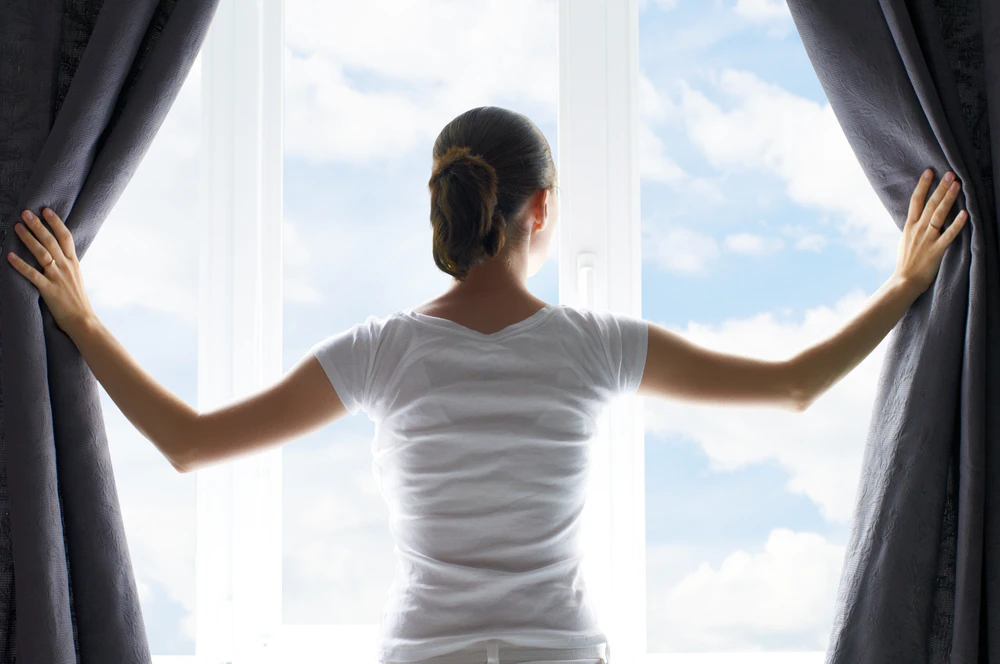
No matter where you live and what your pandemic experience was, I’m sure you would agree that the past year-and-a-half was a shit show.
Many of you juggled working from home and taking care of children. Some of you lost jobs, businesses and/or income. Others took care of sick family members or grieved for those who succumbed to the virus. And let’s not forget those of you who were frontline workers, dealing with intense daily stress.
Research shows that women suffered some of the biggest setbacks during the pandemic. One study revealed that women dealt with the brunt of childcare, had a higher chance of losing a job, and reported greater stress than men during this time. Another noted that women are overrepresented in the industries that were hardest hit by Covid-19 (food service, retail, childcare and entertainment, to name a few) and are more likely to be informal workers (contractors and freelancers) who lost an average of 60 percent of their income during the pandemic. To make matters worse, middle-aged women have also been more likely to suffer from “long Covid” than other demographics. Yet another report summed it up this way:
“Covid-19 [has been] hard on women because the U.S. economy is hard on women, and this virus [excelled] at taking existing tensions and ratcheting them up.”
My husband and I were lucky enough to have our health, a roof over our heads, jobs that enabled us to work from home, and two relatively self-sufficient kids (one in middle school, the other in high school). But unfortunately, I lost two aunts as well as a dear family friend to the virus, and my mother, who has Alzheimer’s, needed to be moved into assisted living right in the middle of the pandemic. My sister and I also had the emotionally and physically draining task of cleaning out and selling our family home. It was a heartbreaking time.
Now, we’re all finally getting back to some semblance of “normal,” but this collective experience has made us acutely aware that change often comes without warning. Nothing’s guaranteed. But the great thing about being in this stage of life is knowing that we can adapt, pivot and grow from any experience.
Now, as we look back on the past 18 months, we should be asking ourselves, what did we learn here? More important, which parts of our pre-pandemic lives are worth going back to, and which ones should we ditch?
If there was any upside to the pandemic, it was that it:
- Proved that remote work is totally feasible for many jobs, validating our suspicions that the standard model of office work may be unnecessarily damaging to our quality of life, especially for women with young children. A friend of mine recently admitted that she was apprehensive about returning to her fast-paced pre-pandemic world, which included a long commute and less time with her kids.
- Made it socially permissible to talk about mental health and self-care—something that wasn’t necessarily true before Covid-19. During the pandemic, almost everyone’s mental health took a hit, and more women are finally discussing these issues—or getting the help they need.
- Shone the spotlight on wealth inequality, heightening our awareness that society underpays some people (especially women) who do absolutely essential work. For example, childcare in the United States is exorbitantly expensive, yet childcare workers are woefully underpaid.
- Demonstrated that we don’t need as much as we thought we did. For example, many of us began walking everywhere during the pandemic, and now realize we might not need that second family car.
- Prompted us to re-evaluate our priorities. After mastering the art of working from home, several women I know are contemplating a move to a more affordable town, switching careers, or making other life-changing decisions.
- Showed us whom we want to spend time with. Being in close quarters with partners and family members took a toll on some people, and I know at least two couples who broke up during the pandemic. On the flip side, people who lived alone during Covid may now be focused on finding a life partner, or moving closer to extended family, if that’s what matters to them.
I say we get intentional about setting rules for what we will and won’t go back to. Let’s ask ourselves some important questions like, what makes us happy, what do we want to focus our attention on going forward? Whom do we want to spend our precious time with? What boundaries can we set for work and non-essential obligations? Facing these questions may be challenging for those of us who were hit hard financially during the pandemic, but they are still worth asking.
Here are my own post-pandemic resolutions: I will try to be more present when I’m with my family (including my sister, with whom I chat with on this episode of the More Beautiful Podcast), because I’m going through the agonizing experience of slowly “losing” my mom to Alzheimer’s—and who knows if my own memory will go someday. I will nurture my most important friendships, including those I have inadvertently moved away from over the years. And I will focus on doing work that utilizes my talents and pays me what I’m worth.
We don’t know what lies on the other side of this ordeal. It may be more virus shenanigans, it may be more of a Roaring ’20s scenario, who knows. But let’s not squander this opportunity to toss what’s not working for us, and embrace the possibilities that lie ahead.
What have you learned during the last 19 months and what do you plan to do differently now?
Sources:
Women In Academia Report: Gender Differences in the Economic and Social Impact of the COVID-19 Pandemic
UN Women: COVID-19 and Its Economic Toll On Women: The Story Behind the Numbers
BBC News: Middle-Aged Women Worst Affected by Long COVID, Studies Find
Brookings: Why Has Covid-19 Been Especially Harmful For Working Women?



